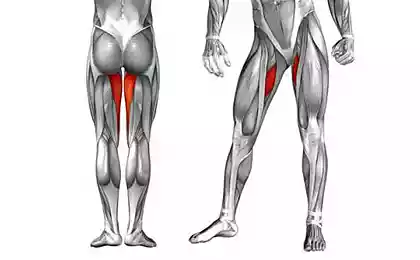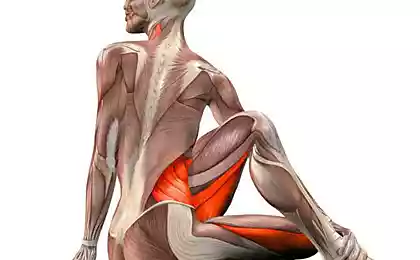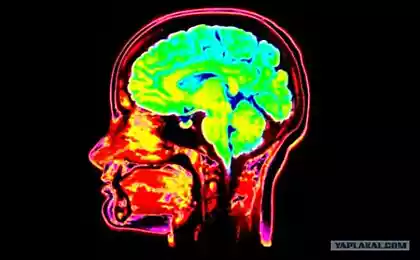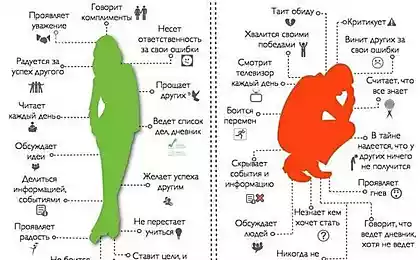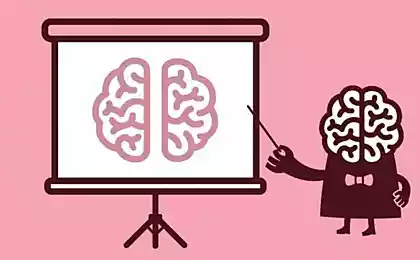453
The human brain could have increased at the expense of muscle
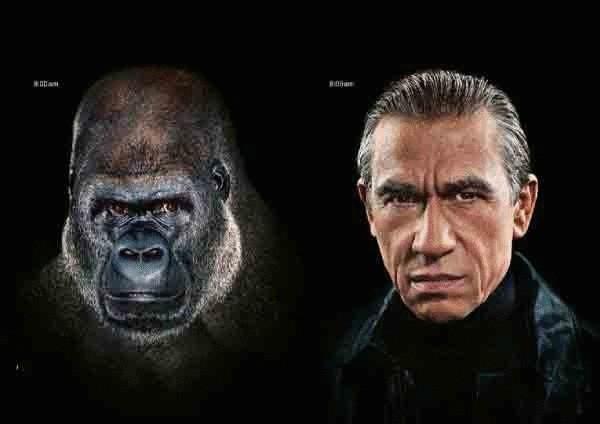
Differences in metabolism between us and monkeys suggests that our brain could have evolved due to the weakening of skeletal muscles.
The volume of our brain is 1 400 cubic centimeters, which is three times larger than chimpanzees, our closest evolutionary relative. And energy capacity of the brain to match it size: if you look at where does our energy resource during rest, it would appear that this is the fifth part of them eats the brain.
When compared with the chimpanzee and other primates, they have on the brain is spent two times less metabolic energy at rest. And then by itself raises the question – what cost us our brain in an evolutionary sense? Excess energy does not happen, and the brain, obviously, to spend the resources that otherwise would be spent on other organs and tissues.
According to one hypothesis, the energy of the brain gave digestive system.
The gastrointestinal tract is also one of the largest consumers of energy, and the higher it is, the more energy is spent on its maintenance.
On the other hand, the size and the energy consumption of the stomach to the intestine depend on the food that they usually have to digest: if this food is indigestible, trudnosmyvaemye, and energy for its processing have to spend a lot, and the intestines must be great. Therefore, there was the assumption that the evolution of the human brain was associated with the shortening of the gastrointestinal tract, and to shorten it, only changing the diet.
This hypothesis was born still in 90-e years of the XX century, however, anthropologists and biologists are still arguing whether there is a correlation between the size of Primate brains and the size of the intestine.
But why would the brain not use other sources of energy such as muscles? This hypothesis attempted to test an international team of researchers, led by Philip Haytovich (Philipp Khaitovich from the Institute of evolutionary anthropology max Planck. The researchers compared energy expenditure in different tissues in humans, chimpanzees, rhesus macaques and mice.
Tissue samples were taken from prefrontal cortex, primary visual cortex and cerebellar cortex, as well as kidney and skeletal muscle. The energy consumption was not directly determined, and the nature of metabolism: the authors evaluated the metabolome, the totality of molecules that serve as energy and structural material for cells. Among them were amino acids, and fats, and vitamins, and many others – a total of about 10 000 molecules. And with their help tried to understand what the metabolic differences between tissues, and then to compare these metabolic differences to genetic.
As write the authors in their article in PLOS Biology between mice, monkeys and chimpanzees differences in metabolism and genetics was small. Also not too different from each other in the human kidney and muscle (note that there did not compare the structure of the tissue, not ready proteins and so on., as part of the metabolic raw materials needed for the construction of macromolecules). On the other hand, the metabolic profile of the prefrontal cortex of the human brain is very different from that found in the cortex of monkeys. The researchers were able to assess metabolic changes in the human brain: for 6 million years that separate us from chimpanzees, metabolome of the human brain evolved in 4 times faster. (This, as you know, we differ genetically from chimpanzees by about 2% of the genome.)
This is not surprising, in the end, the human brain is more active and diverse than the chimpanzee brain and because brain metabolism we have to be different. The surprise was different: metabolic map of the skeletal muscles we are also very different from the metabolome of primates, and these differences were great enough as if evolutionary change occurred, we compared primates 8 times faster.
Generally speaking, this could be attributed to the change of diet and General lifestyle. To test this hypothesis, the researchers posed the following experiment: twelve monkeys were divided into two groups, one seated one by one and fed cooked food, rich in fats and carbohydrates (imitation food of the modern man), others too sit alone, but kept to the usual for monkeys aft of coarse vegetable food. Metabolism those and others were compared, and in addition also with the metabolism of other macaques that are not just fed, as usual in nature, but were free to chat and play with my family.
However, despite the differences in lifestyle, differences in metabolic maps in macaques was only 3%, much less than between apes and humans. This means that the differences in metabolism between humans and other primates cannot be attributed only to environmental changes.
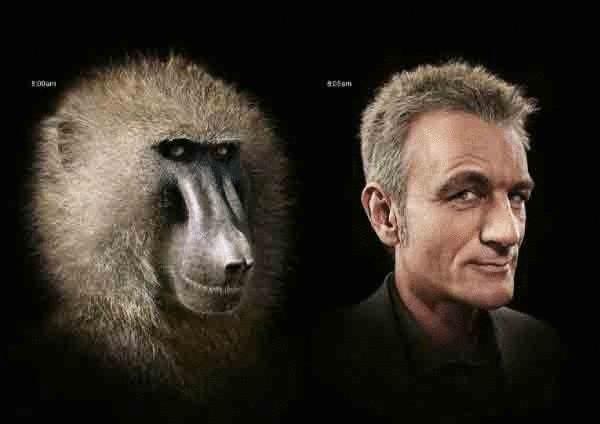
Finally, the researchers directly compared the muscular strength of chimps, macaques and humans, including, of course, body size. Previously, such measurements have already tried to hold, but reliable comparisons on this score was not. In the experiment, the humans and monkeys had to pull the load using the muscles of both arms and both legs (from people who participated in the contest the players Amateur and professional climbers). It turned out that people in average two times weaker than primates. Further studies showed that the muscles of humans and chimpanzees muscles use energy in the same way.
That is, simply put, muscle people work the same way as the monkey, only weaker. And rhesus macaque, whether it is the size of a man, could easily beat even a professional athlete.
Researchers believe that enlargement of the brain and a parallel weakening of the muscles in the course of human evolution is not just a coincidence: between the two there is a link. That is, to energetically support the growing brain, we selected the energy from our muscles. However, the researchers ' work, which briefly writes ScienceNOW, only indirectly confirms this hypothesis.
In the end, the biologists still only just noticed the correlation between evolutionary changes in brain metabolism and the same changes in muscle metabolism. It's possible that our brain, as its development took energy from multiple sources, not limited to only the digestive system, or only the skeletal muscles.
On the other hand, the relative weakness of the human musculature could be due to the fact that people began to use their muscles differently than monkeys. And this, in turn, could be due to an increase of the brain – man was able to optimize their actions and began to use your muscles wisely, not relying on just brute force. In this case, it all turns out on the contrary: the growing brain allowed the muscle to reduce energy requests.
Source: nkj.ru

